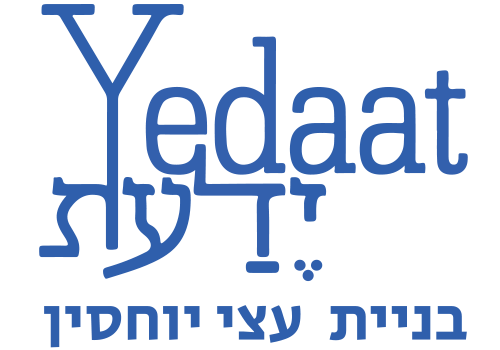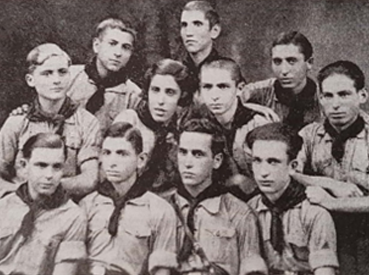Fascinating Articles and Customer stories by Yedaat

A little less than ten years ago, I founded Yedaat with a somewhat insane vision: “to connect all the family ties within the Jewish people.” As of early November 2025, I have added over one hundred thousand new individuals to the family tree, people who were not previously recorded anywhere. In terms of the number of connections, according to various experts, I have so far linked well over 1.5 million family ties. The vast majority of those I have documented are Jewish; therefore, nearly all the connections are among Jewish families. It seems I have documented nearly every Jewish diaspora, except for the Ethiopian community. *** How Do You Document One Hundred Thousand People? It begins with people – dozens upon dozens of families from Israel and abroad – who placed their complete trust in me, revealed their family secrets and, along the way, shared astonishing stories. Each encounter with such a family feels like opening a treasure chest of knowledge. Most people who come to me confess the same regret: “When we were young, we didn’t ask, and now there’s no one left to tell us.” I hear this sentence time and time again. This is why documenting a family is a mission – to preserve family ties and heritage for future generations, and to reconstruct connections that were lost. For that, I study and process enormous amounts of historical material, read endlessly, and often purchase rare and expensive books, most of them in English. To deepen my knowledge, I attend professional conferences both in Israel and abroad; some events require in-person attendance, while I also take part in countless online lectures, in Hebrew and English. My background is in computer science, with over forty years of experience. I set up a dedicated computer lab at home and obtained the necessary software licenses. This investment has led and continues to lead to meaningful breakthroughs. I estimate that I can access tens of billions of personal records worldwide. I create family trees on Geni.com, managed by volunteer curators. All my work is visible online for anyone to explore, within privacy limitations, of course. Geni’s uniqueness lies in its aspiration to create a single world family tree that supports many languages. Working within one global tree constantly exposes you to new data cross–references and greatly enhances accuracy. *** To Contribute and Be Contributed to In line with my vision, I decided very early on that in every research project I undertake, I will dedicate at least 10% of my effort to community contributions, expanding and linking related or relevant family trees. To contribute even further, I decided to qualify as a Geni Curator, an official Tree Manager. I completed the certification process and obtained the formal title. There are about a hundred curators worldwide, only a handful in Israel. We are all volunteers who assume considerable responsibility, are “obsessed” with this work, and together manage one enormous puzzle that already comprises over 200 million people, many of them Jewish. The most significant advantage of this role is the opportunity to collaborate with top genealogists from Israel and around the world. Every single day, I receive messages from people across the globe, such as: “I saw you updated information about my mother/grandmother/great-grandfather. How are you related?” My standard answer is “I’m not related, I’m a Geni Curator.” Each update, every clarification, helps strengthen and deepen family ties. *** Different Types of Research There are “regular” family studies, beginning with detailed interviews, followed by tree building and gathering documentation from diverse sources. In many cases, I have been asked to revise or correct previous research when people had spent years researching their family but reached a dead end. Some of the most moving projects involve documenting entire communities and inter-community connections: The Drohobycz–Borysław community (now in Ukraine) – I documented thousands of Jews in a strive to reconstruct as many family ties as possible. The Nabeul community (Tunisia) – based on a database prepared by Dr. Victor Hayun, whose remarkable doctoral dissertation documented the city’s Jewish residents. I processed his work and uploaded it to Geni.com. The Jews of Babylon – I documented thousands of individuals and, in cooperation with MyHeritage, uploaded data on over 100,000 people who immigrated from Iraq in the 1950s. Ms. Aliza Dayan Hamama, CEO of the Babylonian Jewry Heritage Center, led the project. The Papo Project – full disclosure: I am a descendant of the Papo family. The Papos are Romaniote Jews, of the Balkans and the Eastern Mediterranean, dating back to Roman times. These communities spoke Greek, and the family name Papo derives from the Greek word Pappos, meaning “grandfathers.” To date, I have documented hundreds, if not thousands, of individuals with this surname and have revealed extensive family ties. The Rhine Valley communities (Germany) – there is vast information on those communities, but they are small, with scattered populations. German towns historically limited the number of Jewish families allowed to reside. With the rise of the Nazis and oftentimes earlier, many Jews emigrated or fled, most of them perished in the Holocaust, and their communities ceased to exist. In recent months, I have focused on tracing family ties among these Rhine communities, adding hundreds of names and forging many new connections. A large part of my research focuses on the Holocaust, people who disappeared, lost their families, and ties. To date, I have documented thousands of victims and survivors from that period. It is profoundly moving, and I often find that I’m in tears when reading Pages of Testimony written by those who lost dozens of relatives, when sometimes they are the sole surviving family member. In many cases, documentation is missing simply because no one was left to record it. It is rare yet deeply emotional to locate lost relatives and reconnect them with families who have been looking for them for decades. In each community I have documented, the tools I use have revealed hundreds or even thousands of new family ties. Some of these connections continue to surface months and even years after the information goes online. *** And on a personal note to conclude Had you asked me when I founded Yedaat whether I believed this milestone – documenting one hundred thousand individuals – was achievable, I would have said no. Certainly not within a decade. To the best of my knowledge, no one in Israel has documented such a vast number of people. There are only a few in the world who have managed to do so. It has been a long and fascinating journey. There is much to be proud of, yet much more work remains to be done. Right now, several exciting new studies await me. And I’m not done, for I have not yet fulfilled my vision of connecting all the family ties within the Jewish people.

A unique story for Holocaust Remembrance Day Winter 2003, Ra'anana The Shabbat dinner had ended. Frida felt tired and needed to rest. She rose from her chair, walked toward the living room armchair, sat down, and watched her children and grandchildren run around the spacious house. A great sense of pride filled her heart, and her eyes sparkled with happiness. This was the best time of her week; she longed and waited for it, sitting with her children and grandchildren, witnessing her enormous victory against all odds, the talented children she had raised, and now their children. "May they only stay healthy," she silently wished. She regretted that Haim was not with her. Haim, who had passed away a few years earlier due to that terrible illness. Haim, who had walked with her from the displaced people camps in Europe after the war, all the way to creating a magnificent family in Israel. Hadar walked toward her, smiling warmly as always. "Saftul," she said, using the nickname she had invented as a little girl—a name only she used. "Saftul, I’m in the officers’ course and wanted to request something." "I know you’re in the officers’ course, Hadari’le," Frida replied. "I told all my friends what a general we have in the family." "Not a general, Saftul, just an ordnance officer," Hadar giggled. "To me, you’re General Hadari," Frida said, thinking how proud she was of this girl. "Saftul, do you remember our conversation? I wanted to ask again. I know it’s hard, and you’ve never spoken about it, but maybe you could come to our course and tell us a little about what you went through in the Holocaust?" "I’d like to, Hadari, but I don’t think I can. I wouldn’t be able to sit there and talk. It’s too much." "It’s on January 15, Saftul. We’ll come to pick you up. It’s nearby—just a half-hour drive, and you’ll only need to speak for half an hour. Not too long." "What did you say, Hadari? When is it?" "January 15. In the morning." "January 15 is my birthday. A milestone birthday, actually." "What do you mean, Saftul? We just celebrated your birthday a few weeks ago." "My second birthday. An unbelievable story. That one I definitely couldn’t tell in front of other people." "Maybe you can tell me. I’ll record you and then play it for the course. What do you say, Saftul? It means a lot to me, and not just to me. My friends don’t know much about the Holocaust." "Alright," she said. "Let’s do it." Within minutes, Hadar returned with the tape recorder. The clatter of clearing dishes from the table ceased, and silence fell as if by magic. All the surrounding hustle faded too. "I’m recording, Saftul. You may start." Frida leaned her head back and began to speak. Since her eyes were closed, she didn’t notice that everyone around her had quietly gathered, sitting wherever they could find space—some even on the floor—listening in absolute silence. Winter 1943, Auschwitz-Birkenau ‘This is it, Frida, it’s the end. No one ever survived this. The only way out is through the smoking chimneys.’ She had been in the camp for several months, watching her entire family march to their death, along with many of her relatives and friends. She sat and stared at the walls around her— ‘Is this where I die? Is this the last place I will see? And the snow I saw this morning on the way here, is this the last snow I’ll ever see?’ She wouldn’t raise a family; she would die like a dry branch with no continuation. ‘This is it. The hatch above will open in a few moments, and someone will drop the gas. They’ll drop it, and we’ll all die,’ she thought, envying the new girls who didn’t know what awaited them. She looked around. Inside the gas chamber, the "showers" as the Nazis called them, there were several dozen women, standing naked, their hair already shaved. ‘This is the last thing you will see, Freidela,’ she told herself, remembering her grandmothers who used this nickname with a heavy Yiddish accent in her small childhood town. Her thoughts wandered to her family’s house in that town, her uncles and aunts, her mother’s preparations for Shabbat. She remembered how hard her mother worked to gather whatever she could to cook something for Shabbat. She also remembered her father’s Kiddush on Friday night. Her thoughts raced back to better days when the boys started courting her, but she kept them at a safe distance, scared. She remembered her friends from the youth movement, a group that dreamed of founding a kibbutz in Israel and growing oranges. She had no watch, but she guessed quite some time had passed since they were locked in this room and nothing had happened. Usually, the gassing started right after the doors closed, but now, the doors had been locked for quite some time, and nothing happened. The women, standing on the frozen floor completely naked, started to shiver. Some began to turn blue. Slowly, carefully, they inched closer to one another to warm up. When the cold overcame them, they gently clung to one another. Frida made sure to push the ones turning blue to the center, and they occasionally swapped places. Time passed by, and nothing happened. ‘Am I even alive or am I dreaming?’ she asked herself again and again. Her thoughts wandered to her brothers and sisters, all of whom were murdered here. To Moyshale, who didn’t get to celebrate his Bar Mitzvah; to Chana, who got engaged to Yankel but would never marry him; to beautiful Tzirel, she refused to remember what the Germans did to her, and so on. She went over the names, one by one, dozens of family members, acquaintances, and friends. They were all murdered. She looked around, but nothing happened. She felt like screaming, ‘What are you waiting for? Why are you torturing us? Kill us and get it over with,’ but nothing came from her mouth. Time passed, and the women around her were almost all cold blue. Now they were all hugging each other and clinging more tightly. The cold had defeated their shame. Some girls had fallen into a stupor, their lips trembling from the cold. She lost track of time and sank into a stupor herself, waking up every now and then, unsure if she was still alive. All of a sudden, the doors opened, and two women rushed inside, shouting in Yiddish, "Out, women, out! Put on the clothes you left outside!" Frida pinched herself in disbelief. She found her clothes, which she had left in a bundle in the corner, and dressed. Covering her frozen body with clothes felt incredible to her. From then on, every day when she dressed, she remembered that moment when she put her clothes back on. Winter 2003, Ra'anana When Frida opened her eyes, she was astonished to see that everyone had gathered around her in complete silence, their mouths agape. "On January 15, 1943, I walked out with several dozen women from a place no one ever came out alive. That day, I was only millimeters away from death. On that date, I was actually born again. There were other times when I could have died, but they don’t count like this one. This time, there was so much time to think and wait for death, which in the end didn’t come," she said. "And you probably want to know what happened that they took us out of the gas chambers," she said, and took a long breath. The others nodded silently, unable to say a word. Hadar bit her lip and gently placed her hand, almost brushing, over her grandmother’s arm, the arm with the number tattooed on it. Frida took Hadar's hand in hers and kissed it. Hadar wiped away the tears from her eyes. Frida looked at her, trying to smile and barely managing to, holding Hadar's palm and gently squeezing it. "It took me years to gather the pieces of information," she continued. "A piece of information from here, another detail there, until the picture became clear. In the winter of 1943, thousands of German soldiers froze to death in Russia. Many lost limbs, and many others froze and died. Among the Germans, there was a constant disagreement. Some wanted to exterminate as many Jews as possible, while others wanted to use them as labor. "While we were waiting in the gas chamber, a great argument took place between the two sides, those who wanted to eliminate us and the industrialists who urgently needed women to sew coats and winter gear for the soldiers. That morning, fortunately for us, the need for coats prevailed. Later that day, we were taken, hundreds of young women, and transferred to a massive factory, where I sewed coats and clothes until I was liberated." March 2003, Central Israel The closing ceremony of the Ordnance Officers' course was nearing its end. Frida sat beside her daughter Gila, surrounded by the entire family, her eyes searching for Hadar. She leaned over for a moment and whispered in her daughter’s ear, "Gila, if I had told anyone back in Auschwitz that one day I would be here at a ceremony like this, in Israel, with my granddaughter, they would have told me I was completely crazy." Gila hugged her, smiled a mysterious smile, and didn’t say a word. The young officers performed drill exercises, marching left and right at the drill sergeant’s command, forming various shapes. The command "Stand at attention" was heard when the requested shape was created. Immediately after, the ceremony leader announced the shape that had just been created and said a few words about it. When the third shape was created, the officers stood in place. The ceremony leader announced, "The officers have created the name ‘Frida.’ Frida Eisenstadt Roth is our guest of honor today. Frida miraculously survived Auschwitz. Her granddaughter, Hadar Yarkoni, has been commissioned today as an outstanding officer." Then, he yelled, "Officers, salute!" Dozens of officers in all ranks stood up and saluted Frida, their eyes turned toward her. The crowd cheered enthusiastically. Frida pinched herself, covering her mouth.

Warsaw, Poland, 1924 Miriam Gott was excited and anxious just like a little girl, although she was not young anymore. She was the second in line to the office, the office that in a short while will give her the long-awaited visa, the visa to America. In the past few nights, she couldn’t sleep. The thoughts about America drove her crazy. But that didn’t matter anymore. All she had to do was pick up the visa, make the last move and end a two-year effort. From here, she will hurry to the train station and from there, to the ship and, America – get ready, here I come! She reached into her inner well-hidden overcoat pocket and felt the boarding pass to the cruise umpteenth. Two years, she thought to herself, and what two years they have been. So many things happened in the past two years. It started with the matchmaking. She was to be wed to Avrehmel. Her father and the groom arranged all the details as if she is some sort of property for negotiation. She knew who Avrehmel was, but never met him. He was considered one of the best “catches” in town and all details were agreed upon, but she had her mind differently and refused to marry him, a completely unacceptable act in the strict Orthodox community she lived in. She didn’t want Avrehmel and didn’t want to live in Warsaw, a city she hated. She dreamt of America. She pictured some photos she once saw in a magazine, pictures of tall buildings, skyscrapers. That’s where she wanted to go, that was her dream. Her father was furious with her for declining the matchmaking, the family was a mess, and a parade of aunts and cousins tried to convince her to change her mind, each one in her own way. But she stuck to her decision and vehemently refused. The matchmaking was canceled, the shame was unbearable, her father’s world collapsed, and she was thrown out of her home with nothing but the clothes she was wearing. None of her family members spoke to her ever again. When she passed by them, they would turn their heads, not willing to admit there was a chance they know her. The banishment was absolute. At the age of 20, she found herself completely alone, disconnected from everything she knew, detached from her family and community. Here, she smiled to herself, two years have passed, two years of struggles and hard work, two endless years in the damp sawing workshop in the shabby basement. And now, after saving enough money, penny to penny, now she’s on her way to America. The line grew longer, and people gathered, but she was immersed in her thoughts and dreams, hardly noticing the happening around her. She glimpsed at her watch, eager for the office to open. In the past few days, she sold and gave all her belongings, everything she had accumulated in the past two years. All she had left was tucked into one suitcase, with which she will start her new life on the new continent. The clerks took their time, enjoying a few more minutes of quiet before they started their daywork. Miriam raised her head and looked around at the people standing in line. Right next to her was a Jewish family, they spoke Yiddish and she smiled at them, having trouble hiding the joy on her face. The older man, probably the father, smiled at her. Next to him was a young man about her age. She smiled at him, and he immediately blushed and lowered his eyes. “Itzik Winter, my son,” spoke the older man, “you can say hi to the nice lady.” “I’m not a lady. Miriam is fine, Miriam Gott,” she answered in Yiddish. “My name is David Winter, and this is my son Itzik and these are Itzik’s sisters,” he presented to her two young girls, “and this is my wife, Malka Winter. Now you know the entire family, except for Dvora, the eldest daughter…” he said and sighed. Miriam managed to exchange a few words with the family before the office opened. David Winter awaited this day for months, and it finally arrived. Everything was arranged. He’s taking his family to Palestine. Only Dvora was missing, Dvora that always feels she must do things her own way, that once she made up her mind, nobody and nothing will change it. He came up with the idea to immigrate to Palestine after reading Herzl’s book ‘The Jewish State’. On that day, he made up his mind. His neighbors said he was crazy, the crazy man that goes to Palestine while everybody else goes to America. But he was determined. “You can’t complain that Dvora is stubborn when you act like this,” said his wife repeatedly. “Everybody is going to America, and you are going to Jaffa. Does it really surprise you that Dvora is stubborn?” For several weeks now, the Winter family argued. David and Malka insisted that the entire family travel together when Dvora was determined otherwise. David managed to arrange visas for everybody, the British Mandate authorities provided them with certificates, but Dvora refuses to join. She insisted on going to Palestine with her youth movement friends, not with “mommy and daddy.” “Just until we arrive at Jaffa,” he begged, “and then you will join your friends from the youth movement,” he tried to make one last attempt, but she refused. “I’ll see you in Palestine, our group departs tomorrow, and I’ll wait for you there,” she said, not giving him a chance. David Winter stood before the clerk and collected the visas. Miriam Gott approached the clerk and requested her visa. The man raised his head “doesn’t the lady read the papers? It was published yesterday,” he said, “there are no visas to America.” Miriam thought she was going to faint; all her life savings were spent on the cruise ticket… all her dreams of America… This is impossible… “What do you mean there are no visas to America? I already purchased a ticket,” she said, presenting it to the clerk. “America closed its gates a few days ago. No more immigrants are allowed. There are no visas to America.” “But it can’t be…” she said with tears in her eyes, “I have a ticket.” “Dear lady, there are no visas to America. Actually, you’re lucky. There are thousands of people on ships in the middle of the sea, unaware that they’ll arrive at closed gates. What will they do when they arrive? God knows. I’m sorry,” he said and turned to the next in line. Miriam sobbed uncontrollably, not knowing what to do. Somehow, she managed to find her way among the crowd and set on a nearby bench, fearing she will faint. She was so overwhelmed that she didn’t notice everybody was looking at her. David Winter saw what happened. He heard fragments of the conversation and immediately understood. He was the first to approach her, sit by her side, giving her a spotless ironed handkerchief. His family gathered around them. The girls tried to cheer her up. Itzik stood by. *** The bride walked to her wedding in the sandy alley that was leading to the wedding hall. Since she had no family members, the sisters of the groom accompanied her, walking by her side and holding her dress so it will not drag on the sand. When she entered the hall, everybody stopped talking and started clapping and cheering. A few meters before the altar, she stopped and waited. The groom approached her, blushing and nervous, and covered her face with the veil. Shakily, he led her to the altar. The Rabbi initiated the ceremony. Miriam whispered to Dvora Winter, standing by her side, “well, what do you know? Instead of America, I found Hadera and on top of that, I found a husband, Itzik Winter, all thanks to you, sister, all thanks to you giving me your certificate, you and your youth movement…” Dvora squeezed her hand warmly, holding it between her two palms. She whispered loud enough for her father to hear “this is all thanks to stubborn Dvora, as stubborn as a mule… she and her youth movement…” The Rabbi looked at them, Miriam and Dvora tried not to laugh, while David and Itzik Winter smiled.
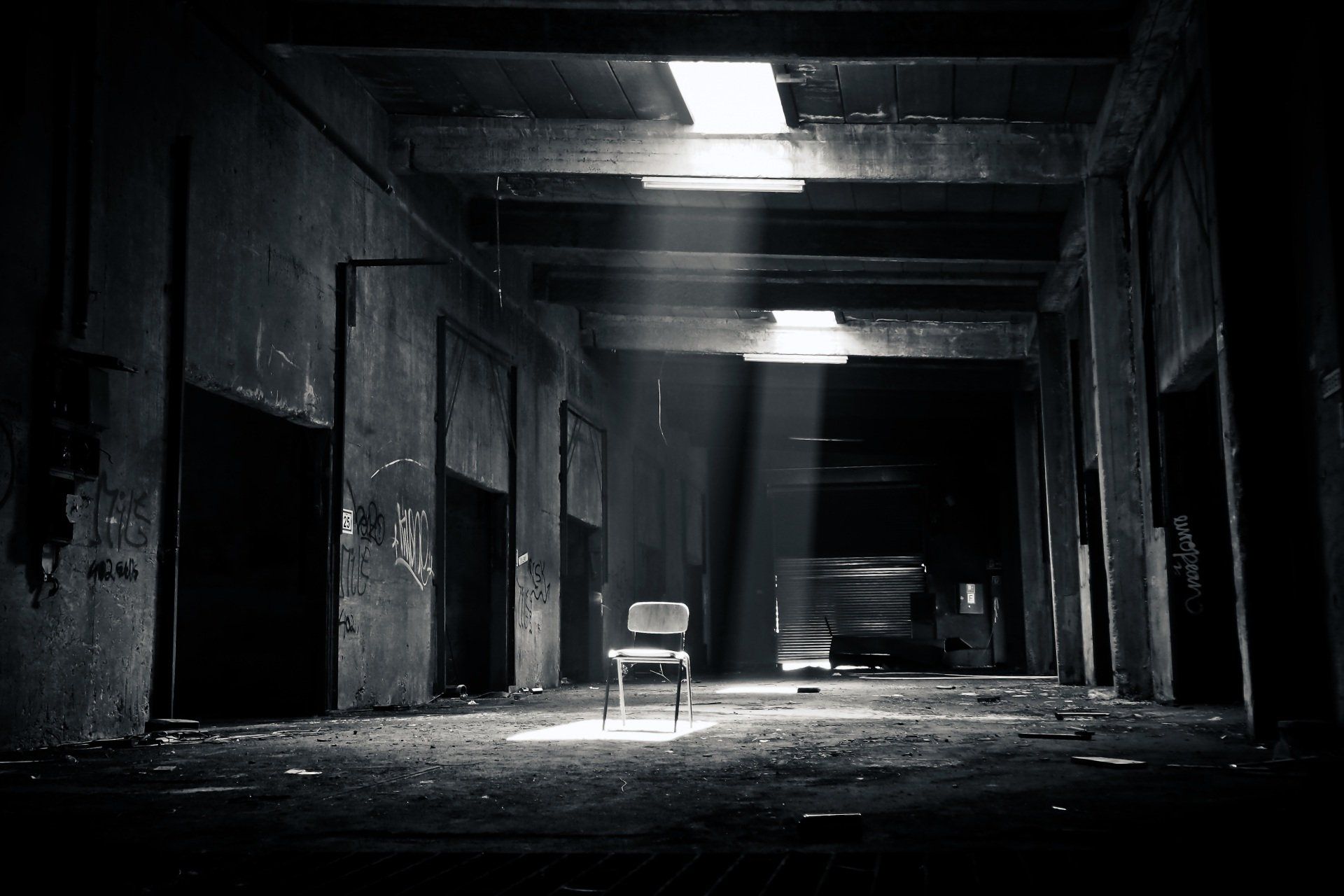
Ramat Gan, June 2017 Yehiel set and counted the minutes. He was half an hour early, couldn’t even imagine being late. He set, waiting for the meeting to start, glimpsing at his watch repeatedly, while time seemed to stand still. One of the most senior executives in Israel, with numerous articles and magazine profiles to his name in all possible media, buttoned in a suit and a tie, “his work clothes” as he called it. He chose this spot, a small neighborhood café, with a private room. All the way to this place he looked in the mirror, making sure he was not followed by some journalist or photographer. From the moment he left his parking spot at his office, he had dark glasses on, fearing someone will recognize him. He removed the sunglasses only once he was shown into the private room and the door closed behind him. To be 100% sure, he set with his back to the door, fearing that by chance, someone will open it and recognize him. When he didn’t look at his watch, he looked back, wishing the door will already open and the meeting started. A waiter came and filled his glass with water. Distracted, he put his hands in his mouth and started biting his nails. He hasn’t done this in 40 years. He knew exactly when was the last time he did that. It was on his first date with Dalia. They sat in a restaurant and the conversation went smoothly. At a certain stage, she said he was causing her trouble with her father. He had no idea why. “My father claims that men that bite their nails and cannot control it… have a weak character and are untrustworthy.” He stopped biting his nails, looked at her and said, smiling, “I don’t think it’s a good idea to get into trouble with your father on the first date…” She laughed and blushed. This was the last time he bit his nails and Dalia was with him ever since, the mother of his children and “his better side.” Now, without even noticing, this obscene habit returns, after so many years. He took his fingers out of his mouth and waited for the rest to join, eager to discover all the information about what bothered him for years. Ramat Gan, the 70s and 80s It bothered him and intrigued his curiosity since childhood, the fact he was “different”. A dark-skinned brown-eyed child to Ashkenazi parents, Caucasian with blue eyes. Yehiel asked many questions throughout the years, but usually did not receive a satisfactory reply. They would bite their tongue and avoid his question. Just before his Bar Mitzvah, his parents told him he is adopted because they couldn’t have children. Every time he would ask about his biological parents, they said the same, “let it go, it’s not that simple, just don’t ask. Trust us, you’re better off this way.” He couldn’t put it sentence to rest, he realized they were keeping something from him, and wanted to know what. At a certain stage, he started thinking that he was one of those kidnapped children, children that were kidnapped from their families in the 50s. One day, he asked his parents, but they replied briefly “you were not kidnapped,” they determined, “you’re adopted, give it a rest.” But he was only more bothered by this reply and was never able to really leave it behind him. Israel, summer of 2016 Dalia organized the vacation to the last detail. The year of mourning over his adoptive father ended a few days earlier. He mourned over his father as he mourned over his mother a few years before. Dalia decided it was about time he “ventilates” his feelings, gets some rest and relaxes. They were sitting by the pool in the luxurious hotel on Mount Carmel. He took a deep breath from the mountain air and gazed over the pines surrounding the hotel. “Did you know?” she said and looked into his eyes, lowering her sunglasses and taking another sip from her pink cocktail, “I checked regarding your biological parents, I’m sick of how this issue bothers you.” “Seriously?” he played dumb and smiled. “Yes, seriously,” she imitated him, “and your guys are so loyal to you that even before they finished helping me, they were probably already at your desk telling you all about it.” “Could be,” he laughed out loud. “Anyway, with the help of you guys, I was able to find the leading person in this field. His name is Yoni, and you won’t believe it, but he lives a 10-minute drive from here,” she said and burst out laughing. Her laughter ended when his lips met hers. Yoni met with them the same day. The meeting lasted a few hours and led to months of investigation, DNA tests, and thorough inquiries. Yehiel followed each step impatiently. He spared no effort and money until the investigation successfully ended. Now, all that was left was this meeting, the meeting he had been waiting for since he discovered he was adopted. Ramat Gan, June 2017 The first woman to arrive was Dalia. She came in, wearing a smile, about 20 minutes before the scheduled time. She leaned and hugged him, feeling his anxiety. A few minutes later, Yoni joined them, accompanied by an elderly woman in a wheelchair and her caregiver. Yehiel embraced her as if he was just a young boy. She didn’t stop whispering “my Yehiel” “my boy” “I named you…” Dalia hugged them both. When everybody calmed down, the caregiver displayed a cardboard file packed with newspaper clippings. It contained endless articles on the beloved son the proud mother gathered throughout the years. Yehiel didn’t move from his mother’s side and a few minutes later, introduced her to her grandchildren, grandchildren she had never met. *** She kept to herself a few details and even at her advanced age, wouldn’t disclose them. What she did say required great effort. She was raped at the age of 16 and discovered she got pregnant. She wouldn’t say who the rapist was or reveal any details about the circumstances. “I’ll take this to my grave,” she said shakily. Someone established contact with the adopting family, who lived nearby. She gave them Yehiel and they help her provide for herself since she was disgracefully kicked out of her house. After giving birth to Yehiel, she was never married or had another child. She never left the city. She followed him his entire life from afar, watched him go to kindergarten, school, return from the army… and then via the media. She saw how successful he was, becoming the famous executive he is, fanatically keeping and filing every clip that had to do with him.

Dalia leaned back in her designer’s chair at her posh office. She was tempted to raise her legs and lay them on the table, trying to take a short break from a crazy day, but she didn’t dare. The phone kept ringing, indifferent to her state of mind. The ringtone was “Lu Yehi”, the song that held a special place in her heart since that evening at the kibbutz in 1973. The melody made her heart sing every time anew. She arrived at the kibbutz as a young volunteer, leaving behind a fiancée, a loving family and her first year in the university, and came to volunteer in Israel for a month or two. She just couldn’t stay in the US when thousands of Israelis got killed and injured in the war. The first time she heard the song was when a young man, Udi, hummed it when he sat in front of her and tried to make a pass at her. A young paratrooper in dusted uniform and worn-out shoes, blonde with blue eyes. He was the typical kibbutz boy as described by the Jewish Agency, she smiled to herself. “After seeing so many blonde guys in the US, you seem fake,” she defied with an arrogant smile, which she regrated immediately. There was sadness in his eyes, something burdened him and turned his blue eyes into a dark shade of grey. This sadness, his inability to smile wholeheartedly, touched her and magnetized her. Months later, others will tell her what he went through in Sinai in this bloody war. He tried to explain the lyrics and said something about “the Israeli Let It Be”, but his vocabulary fell short. But Udi didn’t give up and recruited all the people in the dining room to translate the song for her. At the end of the evening, he wrote the lyrics in Hebrew and English on a napkin carrying the name of the kibbutz on its back. The napkin was covered with chocolate stains, a memory from the cake served in the dining room that evening. That evening changed her life. The short-time volunteering turned into immigrating to Israel, her acquaintance with Udi quickly turned into marriage, they had three children, her American accent almost disappeared and her law office at the center of Tel Aviv flourished. Her eyes wandered to the right, to the framed napkin with the lyrics of the song placed on the table, next to the cradle of the smartphone. It kept ringing with the melody that made her smile. She took one last sip from the tiny delicate espresso cup and finally answered. She wondered what kind of a surprise is waiting on the other side. Her vast experience taught her there’s no end to surprises. She made a successful career out of these surprises. Her eyes went back to the wall, above the phone cradle, to the picture of the family she created with Udi and his extended family, to which she felt she completely belongs. On the other side of the line, there was a distant family member from the US. What does he want? she thought to herself. He discovered by chance the original surname of their grandfather and thanks to that, relatives in Israel. He was extremely excited. “The elder couple, Moshe and Hannah Rosenbloom, reside in Rehovot,” I think. She held the phone so tight it almost broke. “And they have children, Menachem and Tova.” She held her breath, while deep down inside she cursed furiously. “The brother from England, the bl… missing brother,” she murmured, unable to pronounce the word. “What are you talking about?” asked the man on the other side. Omer, her eldest, was born five months after the wedding. “A wedding accelerator” they used to call him. The joy of the birth of a first son quickly turned into worries over a medical issue the best doctors couldn’t solve. The family went into a whirlpool. After months of long trips from the far-away kibbutz to endless tests and treatments all over the country, they had no choice but to leave the kibbutz and move to the center. It ended up with a professor at the Hadassah hospital, a world-known specialist. “You are related,” he informed Udi and her. “The problem with Omer originates from a tight genetic kinship, too tight. With your next child, will take care of this in advance,” he smiled under his mustache, “the next pregnancy will be supervised closely, but you need not worry,” he concluded. Where do they get this nerve? Do they suckle it with their breast milk? All Israelis are the same, she thought to herself. It could be Moshe from the grocery store or a world-renowned professor from Hadassah. They will immediately talk to you straight forward, with such nerve. I wasn’t even thinking about having another child and this professor talks about it as if it was a done deal. He already knows we’re going to have another child. Thank God he didn’t dictate how many children I’m going to have. Maybe he would like to be appointed as my womb guard, or even my marriage counselor. Dalia and Udi invested greatly in this issue, questioning all grandparents, but couldn’t understand how a man born on a kibbutz in the Galilee can be next of kin to a new immigrant from the US. They found relatives that perished in the Holocaust, mapped out the entire family and checked every possibility that came up, to no avail. There was one relative they couldn’t locate, one of the brothers of Udi’s grandfather. He immigrated to England and vanished into thin air. The genetic kinship remained a mystery for almost 20 years. *** One phone call made the lawyer realize her grandfather was a fugitive that changed his surname to start a new life. And more importantly, her grandfather and her husband’s grandfather were siblings.
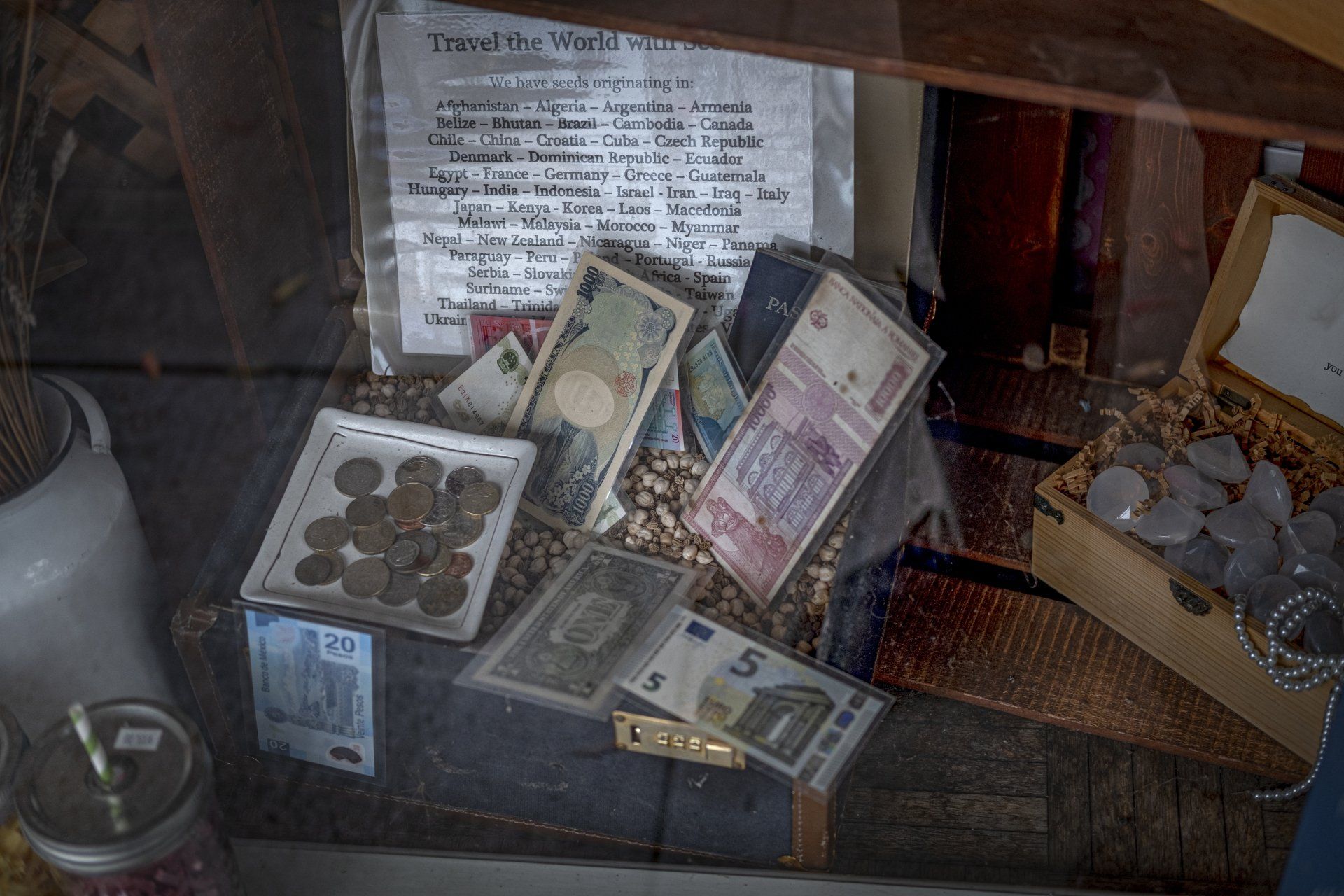
1943 – The Pyrenees Ridge – South of France The motorcycle roared from afar. It got closer and from where he stood, Monnie could spot a shadow of the rider. Actually, he didn’t need to look, the sound was distinct – a military German motorcycle. He signalled his friends, and each knew their job. One kneeled next to a wheel taken out of the front of the car, the other stood as if assisting, the third took an observation point high above the road and Monnie stepped and stood in the middle of the road, close to the “broken” car. The motorcyclist approached and stopped by the car, curious. He asked something in German and Monnie came closer as if trying to better understand what the man is asking while signaling to the German he can’t hear a thing. The motorcyclist turned off the engine and suddenly everything became very quiet. He asked what the road to the nearest town is, wanting to make sure he was heading in the right direction. Only a few minutes passed between the time the motorcyclist stopped and the time he found himself driving fast and “naturally” down the cliff. If anyone was to try and understand what happened, they will come to the conclusion the man misjudged the road and drove down the cliff. Accidents happened every day, Monnie and his gang were experts. Summer of 1935 Monnie stood in front of his shady house in a small town in Bulgaria, on the bench of the Danube. He had a few pennies in his pocket and a small bundle of clothes in his hand. He bid his family goodbye and headed to Paris. A few of his friends were already there, waiting for him. Equipped with basic French he learned at the “Alliance” elementary school, he made his first moves in Paris, and when he was out of words, he used his hands as a mime, which oftentimes was amusing. His friends found him a job with a Jew, a jewelry merchant. Monnie learned how to flirt with the customers, especially women, flatter them and make them feel good. His sales grow bigger and bigger, and the merchant was pleased and compensated him generously, astonished by the success of the young man. In the evening, when Monnie counted the money, he would rub his eyes in disbelief. He had never seen such huge amounts before. He would hide the money well, behind a brick of the external wall of the yard; nobody knew about it or saw the place. Summer of 1935 – Paris Silvi arrived at the store by coincidence. She was walking the streets with her friends, looking for earrings. Monnie flirted with her as he did with all his customers, but with her, something was different. She fascinated him. Loyal to his job and completely focused, he managed to sell her two pairs of earrings “as a deal” and her friends also purchased a few additional pairs. Monnie didn’t let her leave before she gave him her address and he promised he’ll come by once the store closes. Everything happened fast. Within a few days, they became inseparable. A few weeks later she moved in with him and at the end of that year, they announced they are to be married. His friends felt uncomfortable with her, maybe because she was not a Jew and maybe for other reasons, but Monnie didn’t pay attention to them. He was head over heels in love. Silvi worked as a waitress in a nearby restaurant and they hid their savings together, preparing the ground for the house they wanted to build once married. Mid-July 1942 – Paris When the police broke into his place in the middle of the night, he was not there, thanks to Silvi. That night was the beginning of the hunt for Jews. The police went from one place to another, equipped with lists, gathered the Jews, and moved them to a concentration point. Monnie saw everything from a tiny crack in the attic where he was hiding. The night before, Silvi overheard one of the police officers at the restaurant. She warned him and arranged a hiding place with some clothes and food. A few days later, Silvi was wise enough to steal the documents from one of the clients at the restaurant, a very brave act. The documents were extremely valuable, as the man resembled Monnie. He bid Silvi goodbye the day she brought him the stolen documents. It was extremely dangerous for him to stay in Paris, and he escaped to the mountains, hoping to meet with his friends. Before saying goodbye, the couple swore they will reunite once the war is over and get married. Before leaving, Silvi gave him a small photo of hers and kissed him on his lips. 1943-1944 – The Pyrenees Ridge – South of France They managed to hang in for quite some time. a group of Jews with fake documents, assisted here and there by farmers while trying to avoid being snitched about and betrayed. Their method of concealing their sabotage acts and accidents helped people around them avoid German acts of revenge. They took extreme precautions in order to survive, one was to sleep at a different place every night. Occasionally, they would travel far to hit a railroad or an important bridge, knock down phone poles and disconnect communication lines. The operations have become increasingly frequent as the Allies' invasion of France grew closer. They didn’t have much information, but the frequency of orders for action signalled something was about to happen. Monnie carried Silvi’s photo with him wherever he went. Every night, before falling asleep, he would look at the photo, waiting for the day they will marry and build a home together. End of 1944 – Paris The long-awaited day has arrived, Monnie walked the streets of liberated Paris towards his home, anticipation, and desire to see his love grew bigger and bigger as he approached. The concierge opened the door with a weird look in her eyes he couldn’t understand; maybe something troubled her. He opened the door, but Silvi was not there. He went from one room to another, not realizing what happened. There was no trace of her clothes or belongings. The house was empty and abandoned. His neighbors came to congratulate him, following with his friends from the underground, and then the picture started to become clear. A few months following Monnie’s escape, Silvi embarked upon a hot affair with a German Gestapo. She did not only have an affair with him, but she also cooperated with the Germans and snitched on a few underground members that were arrested, some were his childhood friends. A few days before Paris was liberated, Silvi and the Gestapo escaped. To his dismay, Monnie discovered the couple took his life savings. Winter of 1949 – near Heidelberg, Germany The night was dark, and snow started to fall. The sound of the approaching car was loud and clear, he saw the short signal and gave orders accordingly. The car approached and he could spot figures in it. The “broken” car was at the side of the road, blocking the path. Its front wheel was laying on the road. The two men fixing the car waved their hands to the approaching car and it stopped. The driver offered help. A few minutes later, the car drove fast and “naturally” down the hill all the way to the bottom. Just another car accident due to a driver losing control over his vehicle. Minutes later, a nearby farmer will report to the police a car on fire. 1949 – Three Days Following the Accident, Heidelberg, Germany The VIP guest at the motel had his habits and as he was always generous, the waiters circled him enthusiastically. He set by his regular breakfast table, waiting for the newspaper, knowing exactly what to expect. Meanwhile, he sipped from his coffee and put some jam on a toast, immersed in thoughts. A smiling waiter approached and gave him a fresh copy of the local newspaper, which he read every morning. The headline talked about the horrible accident that took place three days before. It was an unusually large headline, and below it appeared the pictures of the victims, together with the burnt car. The diligent reporter provided many details about the couple that got killed. The man, Herman Schmidt, who moved to the area in 1945, used to be a Gestapo officer, suspected of carrying out war crimes, including the massacre of underground prisoners, while he was stationed in Paris. The French government's request to extradite him was being heard in court. His wife, Mrs. Silvi Schmidt, a French woman from Paris, was known as a snitch who delivered many underground members to the hand of the Nazis. She hid for the past few years and was hardly seen outside, fearing for her life. *** Monnie lit a fine cigar, pretending to read the newspaper. He took a few sips from his coffee and took a few extra bites from his toast.

Preface The source of the surname Papo (פפו) or Pappo (פאפו) intrigued me since childhood. Nobody in my family was able to provide a decent explanation for the meaning of the name. My father (RIP) carried this surname and Hebraized it upon immigrating to Israel. My father’s family was considered a Sephardi (originated in Spain) family. I found hard evidence for my family members attending the Jewish synagogue in Ruse (Русе, Rusçuk), Bulgaria. Nonetheless, the name doesn’t appear on the list of families who are “entitled” to a Spanish passport due to their Spanish origins. Moreover, the name doesn’t appear on the extensive database holding tens of thousands of surnames at the Museum of the Jewish People - Beit Hatfutsot website. So, what is the source of this surname? The source I found the first documentation for the name at the Spanish institute Sol del Rev. Catolico. The first mention of the name there appears in 1466 and according to the documentation, the source is the word Papos – grandpa in Greek. In 1466 it also spelled Papa. According to the researcher Rosanès, the name Pappo is typical to Jews that lived in the Balkan area since the days of the Roman Empire. During the Roman and Byzantine times, the Jews spoke Greek. I would like to state that those Jews attended synagogues called “Romaniots”, i.e. the remains of antient communities from the times of the Roman emperors (Encyclopedia of the Diaspora – Bulgarian Jews – page 29). If so, I have a few questions unanswered: Why was my father’s family considered to be a Sephardi family? Why did his family speak Ladino? How come all the man of the family attended a Sephardi synagogue? The explanation begins with the Spanish exile, dated back to 1492, when the banishment of Jews from Spain begun. In the following tens of years, waves of Sephardi Jews immigrated to the Balkan. As part of this process, the “Romaniots” Jews became a minority and gradually assimilated in the massive majority of Jews arriving from Spain. As this process accelerated, the ancient “Romaniot” communities disappeared. A few words about geography – the Jews carrying the surname Pappo were found around Bulgaria, in the cities Belgrade and Sarajevo, as well as in Turkey. Summary The name Pappo comes from Greek – meaning grandpa or old man and characterizes Jews who lived in the Balkan since the times of the Second Temple.
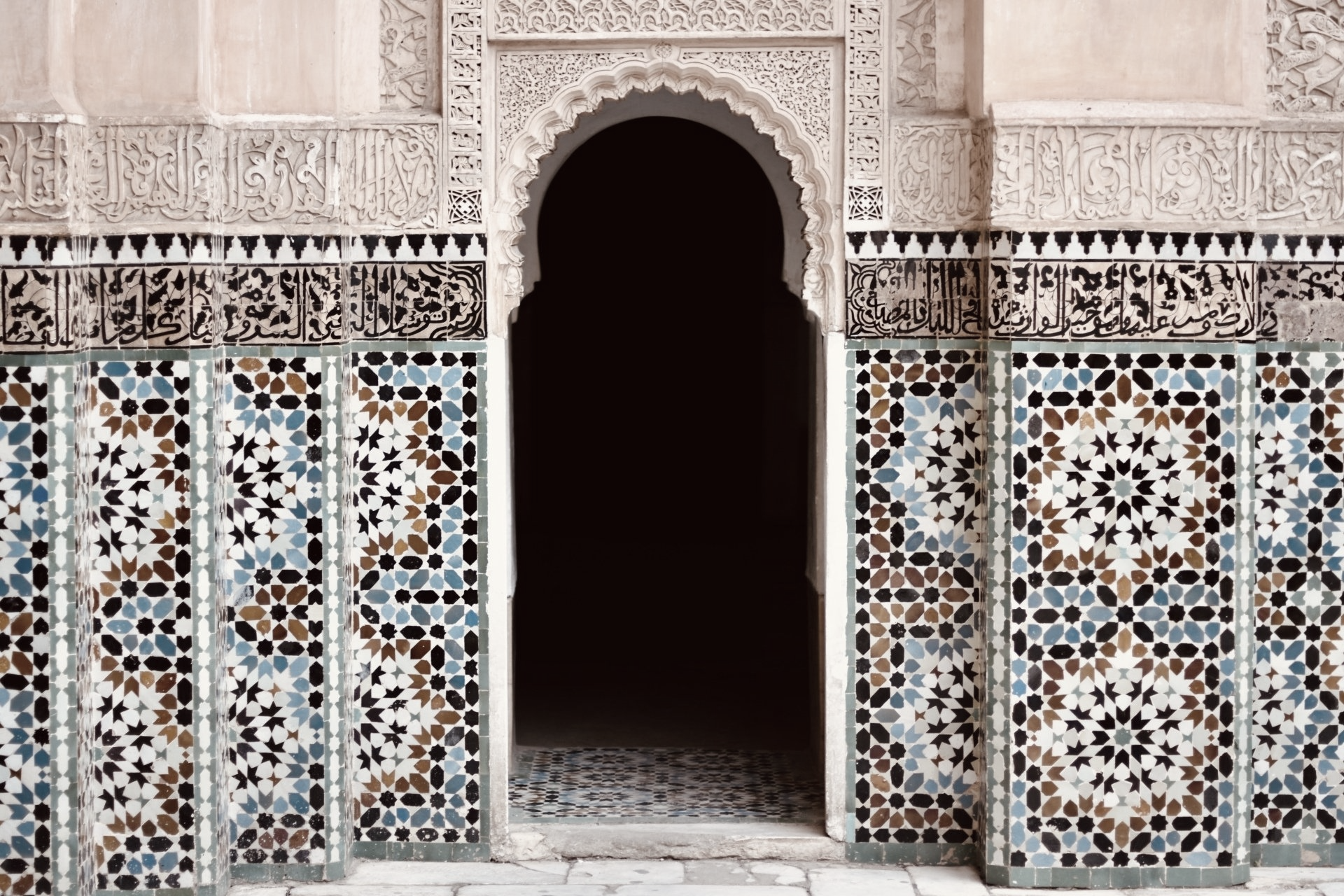
Introduction Whether you intend to write someone’s life story or try to assist a relative in searching the family history, you want to maximize your efforts and achieve the best result. Attached are a few tips that might help you improve the documentation of your family history. Please bear in mind the most common phrase “for years, I didn’t care and when I started caring, there was no-one left to ask”. You have the power to preserve the information and pass it on to future generations. Research Oftentimes, the information we possess is incomplete and/or inaccurate. It is highly recommended to check your “version” with other relatives. This is one of the best ways to reveal new and additional information, that adds important details we were not aware of. Remember that people you can contact now will not live forever, so don’t procrastinate your research and data crossing. I recommend uploading and saving all your results to a dedicated computer file. Photos and more All families keep photos of family members from their different stages in life. Sometimes, photos are not marked, so we are not sure who is in the picture and if a person that appears in one also appears in another, just from a different stage in life. I recommend writing exactly who is in each picture, from left to right or from right to left, top to bottom, and state the order. If you have the information on when and where the picture was taken, state that too. Paper albums might burn or wear-out, so scanning the important photos is highly recommended. Some families even have voice recordings of family members, and it would be wise to save those in a digital computerized format as well. Documents Documents, certificates etc. have great importance. They contain exact and accurate information on events in a person’s life, such as place of birth, residence, marriage, death, etc. When documenting your family history, try to recover as much meaningful information as possible from the documents. Scanning the documents and saving them in a digital computerized format is highly recommended. Sketches and charts Many life stories contain information that was crystal clear to the writer, but with time passing by, the readers might find it hard to understand and make sense of it. For example, “my uncle Izhak was…” or “my grandfather Joseph used to…” The reader will start wondering which side of the family did this uncle belong to? Was he the brother of the father or the mother? Same questions will rise on other people. The best way to convey such information is using the following: Draw simple and clear sketches and the family tree Make sure the sketches depict the ties in a clear manner State important information regarding the people in the sketches. Creating a family tree Drawing your family tree on a piece of paper is complicated, limited and involves complex graphics. There are quite a few programs that allow simple computerized and automatic design of a genealogy . When coming to select a tool, creating the tree and taking all important issues into consideration, please see another article of mine under Tips to Creating a Family Tree . It is always a good idea to upload the data to the internet in a computerized way. Uploading the data to the internet provides the following benefits: Connection to data provided by other people Connecting and adding details from existing databases Exposure to remarks and insights of additional people Connecting and enrolling relatives to the documentation task. Please remember the tree should be accessible to family members abroad, so it is recommended to keep all information in English, to better the communication with such relatives. Databases The following is a list of computerized tools that allow databases which include billions of lists from all over the world. Some are paid databases. If you wish to expend your family tree, please take into consideration that charges might apply. Nonetheless, there are free online databases, to name a few: ANU Museum of the Jewish People Yad Vashem Israel State Archives Information backup and saving As stated before, it is extremely important to organize all data and save in on a computer. Make sure you save photos, audio files, sketches, drawings, documents, text files, etc. Computers are exposed to problems and viruses, so make sure you backup all your data, to verify it doesn’t get damaged to disappear. Consider saving a backup with another family member.

Background and review GEDCOM is the acronym for GEnealogical Data COMmunication, a protocol for data transfer between different genealogical software i.e., the data is imported from one software to another. Each genealogical software has its own database structure, but the basic requirement of all genealogical software is the ability to import and export files using one common format – the GEDCOM format. As anything else in the computer world, “homogenous” data transfer between software has its challenges. The different software save data using different methods and sometimes, issues arise when the data is “translated” from one software into another. Sometimes data held by software A is not supported by software B and therefore, will not be transferred altogether. It is important to note that this format supports a variety of languages, so it enables saving, for example, surnames and first names in many languages – when the data is transferred in each of the languages in which it was written. Use – what is it good for? The most important use is backup. Backup assures all the information gathered is safely guarded. The need for backup can arise when there is damage to the computer, a serious error in the genealogy that requires retrieving previous versions, a need or will to move to another software, a need to connect associates to a research, and more. Sharing – please bear in mind that most popular genealogical softwares are commercial and therefore, operate based on business considerations. A large number of researchers, trying to avoid dependency on commercial bodies, upload the information they gathered to non-commercial sites, such as ANU - Museum of the Jewish People, Wikitree, Jewish Gen, etc. Uploading data online requires a few clarifications: On one hand, uploading data online can expose information and some software events cause changes to the family tree. On the other hand, bringing the information to light usually generates a breakthrough. Remarks and additions of online users, as well as additional information that connects using this link, significantly contributes to the information gathered. You can never know who holds information and of what type. The undersigned encountered endless cases when “pieces of the puzzle” that were still missing following thorough research, were solved within minutes by an external body that shared their information online. In other words, it can be a case of ‘wisdom of the crowds.’ The way to enjoy all worlds is by saving the family tree on an independent software, isolated from the net, and uploading it online periodically, using some shared software. Such method enables full control over the information and prevents unwanted changes and additions, while allowing feedback and receiving additional information from other shared software users. In addition, just by uploading the information online, the entire body of users of the online tree can learn and acquire new knowledge from your research. Uploading a “private” family tree with a few thousands of names significantly contributes, directly and indirectly, to creating thousands of family ties. Please remember this method (using a personal software and uploading the information online periodically) somewhat doubles the work and requires constant updates of both family trees. Summary and recommendations For anybody engaged in genealogy, a GEDCOM file is a must, with great and even critical importance. It is extremely important to frequently backup the data, based on the frequency and scope of changes made to the family tree. Furthermore, make sure you keep a backup away from the computer used for ongoing activity, on a cloud or somewhere distant. It is highly recommended and important to publish family trees online, to enrich the private tree and the entire net community. It is also recommended to upload family trees to non-commercial websites, to avoid dependency on business considerations.


